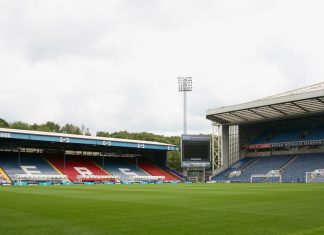Not so though, if you were aware that the referee in charge of the Liverpool V Manchester United game was Phil Dowd.
Dowd has previous of course, and tends to allow such challenges as Carragher’s, despite the evidence of what happens when these tackles go wrong. Rafael then responded with an equally malicious assault on Lucas Levia in retaliation. Wrong, but you could perhaps understand the thought process behind his behaviour. But to attack the Liverpool player for the initial challenge would be to miss the point though.
Referees like Dowd are complicit in allowing such tackles to enjoy a protection they would receive nowhere else in Europe, at least in football. Traditionalists maintain that tough challenges are part of the game, and they are right to argue that. The mistake is in failing to distinguishing between a tough challenge and an illegal one. Going through an opponent with reckless force, even if you win the ball, is illegal and for a simple reason. Because it risks causing injury. The common counter argument to this is that you can get injured crossing the road. True, but the point is that the risk is significant if you launch into a tackle with no control, both feet and at a player whose foot may be planted on the floor, thus preventing them from jumping out of the way of said reckless challenge. This is precisely what happened to Eduardo when the mindless challenge launches at him by Martin Taylor happened some years ago. There is also risk in an injury when one player tries to jump for a header with an opponent and a million other circumstances in which accidents can occur, but the risk is minimal.
But the more persuasive argument against such challenges is that they are against the spirit of the game. Often a player will launch into a tackle they have little chance of winning because they want to ‘show a man that he’s there’, or to try and scare the opponent out of going for the ball. Often they know they won’t win the ball, and their motive for committing to the challenge is dubious. To outlaw such tackles is a good and necessary thing, and it protects skilful players from the reckless abandon of poor defenders who are unable to accept that their opponent is simply better, faster and more intelligent than them.
But increasingly, some defend referees and players alike by pointing to the increased speed of the game. Advances in technology have made the game faster. This argument can only be correct if players themselves are faster – they are after all, the weapons who throw themselves into dangerous lunges. Yet in 1936, Jesse Owens won the 100 metres in 10.2 seconds. In 2008, Usain Bolt beat the record in 9.58 seconds. If the world’s fastest sporting event has sped up by just over half a second in over 70 years, then how average footballers like Ryan Shawcross and Martin Taylor can be so much quicker than their counterparts of bygone generations is a mystery. They are fitter, yes. But faster? Statistically and physiologically unlikely.
Then there is the cliché that Tony Pulis can be heard repeating when one of his players commits one of their weekly tackles which threatens the existence of an opponent’s leg. “He’s not that kind of player.” This was the excuse rushed out for Shawcross when he broke Aaron Ramsey’s leg last year. Yet Shawcross, who had also broken the leg of Francis Jeffers and hacked Emmanuel Adebayor to the floor in a previous game when the Togolese was not even on the pitch, had a track record. As the esteemed Martin Samuel said at the time, “how can so many broken legs be down to chance?” Carragher, if anything, may have been caught up in the emotion of the rivalry between United and Liverpool, as he does not have previous, but that does not excuse him. But there are too many of that type of player – the Shawcross type, such as Ryan Taylor, Kevin Nolan and Joey Barton at Newcastle. Karl Henry at Wolves, Shawcross’s team mate Andy Wilkinson. Often particular managers such as Pulis horde these type of players, as they fit into the team’s ideology. It is time to wage war on such players, as they are to all intents and purposes, the enemies of football. With all due respect to them, no one goes to football to see players like Shawcross or Barton, or teams like Stoke. Spectators want to see the likes of Lionel Messi or Cristiano Ronaldo, and teams like Manchester United or Barcelona. The dangerous tackling debate comes down to who you take the side of – the Messis of this world, or the Shawcrosses.
So the burden is on the referees to enforce the rules and punish every single dangerous tackle committing but a player without control of his body and with reckless force. Dowd sent off Abou Diaby back in February after he reacted to one such challenge from Joey Barton. To continue punishing the retaliation to such offences, rather than the provocation, is damaging the game. It is time to defend it from those who try to make up for a lack of talent with mindless brutality.







